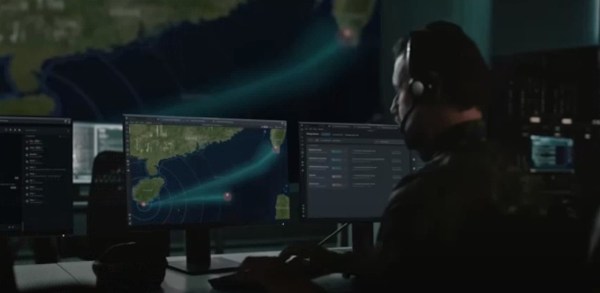DOD eyeing ‘transformational’ edge computing, fog computing tech

The Pentagon is exploring new collaborations with technology companies that can provide potentially game-changing edge and fog computing capabilities to support military missions.
Defense Department platforms that underpin multi-domain operations rely on sensors that capture huge volumes of data about equipment and their operating environments. While edge computing solutions enable real-time sensor data processing near the source and the ability to generate insights from what’s captured at various connectivity levels, fog computing assets mediate between data and the cloud where it is processed for different purposes, like for data filtering or management.
Both types of computing capabilities are of particular interest to the DOD — especially as the department moves to implement its nascent concept for Joint All-Domain Command and Control (JADC2), which aims to better connect the U.S. military’s sensors, shooters and networks to enable faster and more effective decision-making.
“The DOD needs transformational computing technologies to increase on-board data analytics, limit communications latency and cost, increase human situational awareness and enable adaptive decisions, and provide energy efficient computing and architectures for data collection and processing,” officials wrote in a recently published Fog and Edge Computing Needs Statement. “Additionally, the DOD needs collaborative computing and cutting-edge networking for fusion of multi-spatial, multi-signal, and multi-reports.”
This fall, the Undersecretary of Defense for Research and Engineering Capability Prototypes Office and Air Force Research Laboratory (AFRL) Transformational Capabilities Office will jointly host a virtual meeting explicitly focused on fog and edge computing, officials announced in the document. Representatives from select companies will get a chance to make short technical presentations during that meeting to inform DOD officials about existing or in-development products that could bolster defense computing efforts or fill existing gaps.
“There is a potential for companies to be selected for pilot projects or experimentation if their technology [matches] DOD’s needs,” according to the needs statement.
Businesses interested in participating in the meeting must submit applications digitally to the Pentagon by Aug. 10 for consideration.
In the needs statement, Defense officials offered details about the specific areas they are investigating to potentially apply fog and edge computing in new ways.
They noted that fog and edge technologies present both “opportunities and challenges” to Human Computer Interface, a category of interest that focuses on the design of computer technology to facilitate interaction between computers and human users — in ways that result in enhanced performance. Officials are eyeing solutions that “sense and adapt” to users’ cognitive, physiological and physical states, tasks and local environments. Among other features, officials want to look into assets that can provide automatic and interpretable explanations of certain data.
Other capabilities highlighted in the needs statement include “energy efficient computing and architectures for data collection/processing,” and “collaborative computing, fusion and networking” that “focuses on combining signals, features, data, and information across the network to enable decision-making across all echelons at the speed of conflict.”
Additionally, officials want to explore advances in networking, approaches, equipment, artificial intelligence and machine learning to drive “sensing and sense-making at the edge.”






